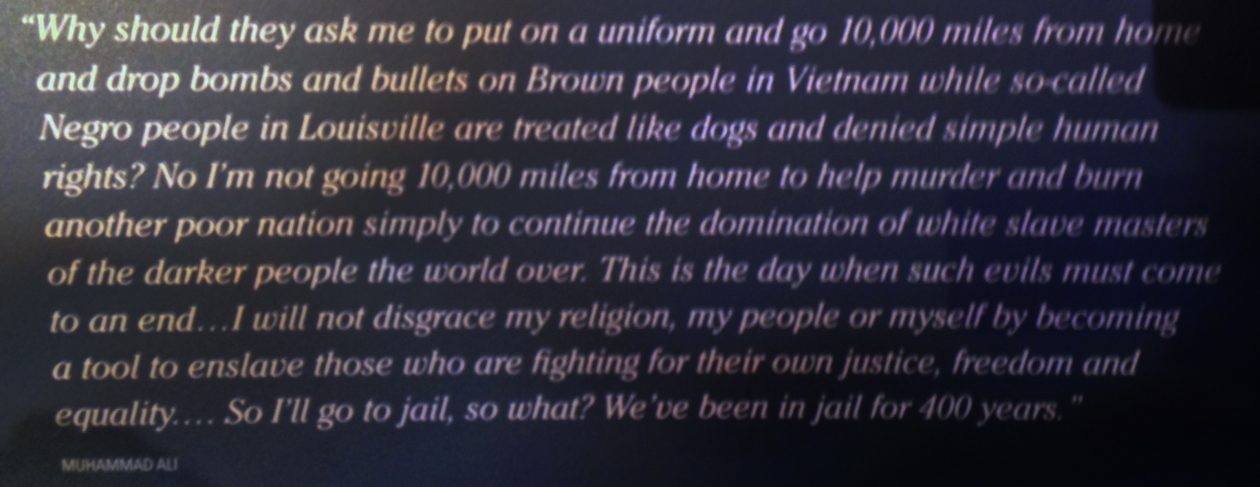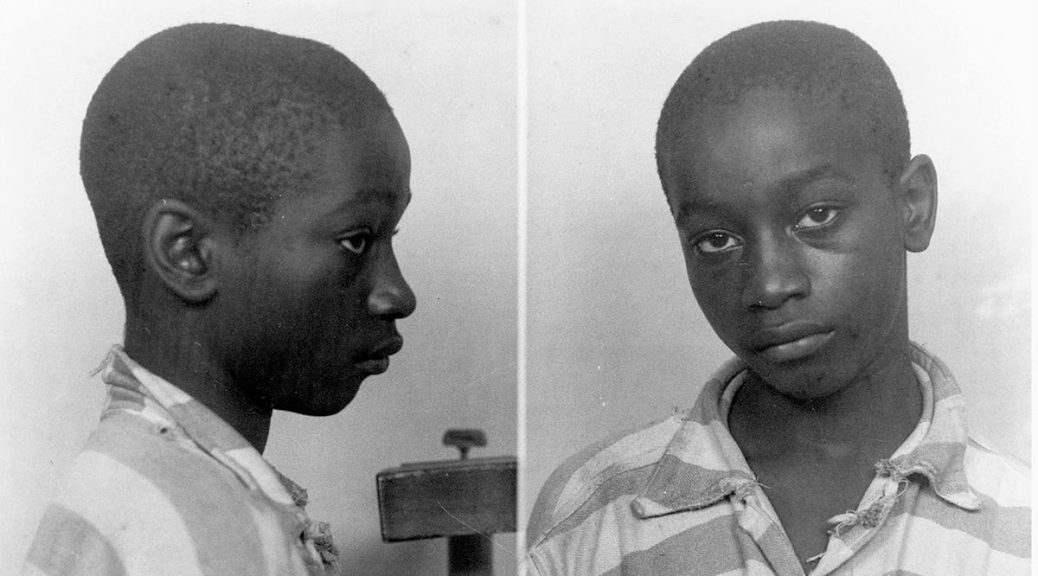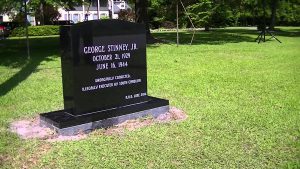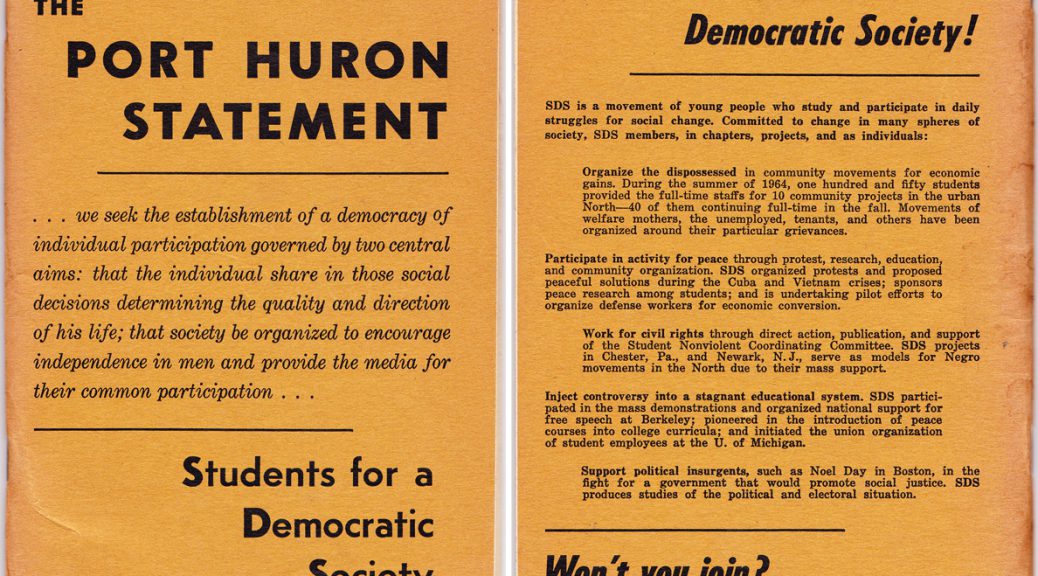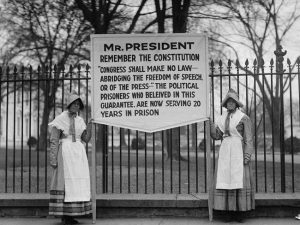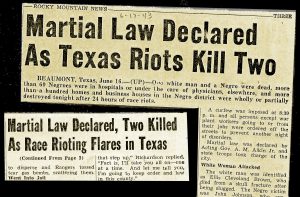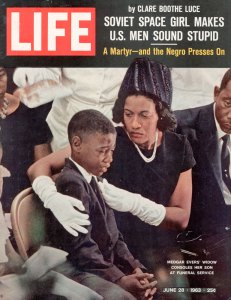June 16 Peace Love Art Activism
BLACK HISTORY
Dred Scott
June 16, 1858,: With the recent Dred Scott Supreme Court decision in mind, and accepting the Illinois Republican Party’s nomination as that state’s United States senator, Abraham Lincoln delivered his “House divided” speech.
Part of his speech included: A house divided against itself cannot stand. I believe this government cannot endure, permanently, half slave and half free. I do not expect the Union to be dissolved — I do not expect the house to fall — but I do expect it will cease to be divided. It will become all one thing or all the other. Either the opponents of slavery will arrest the further spread of it, and place it where the public mind shall rest in the belief that it is in the course of ultimate extinction; or its advocates will push it forward, till it shall become alike lawful in all the States, old as well as new — North as well as South.(next BH, see Sept 13; see Scott for expanded story)
George Stinney, Jr
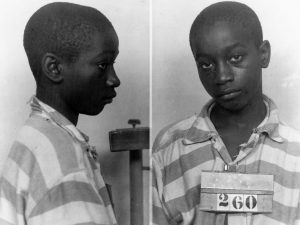
June 16, 1944: Stinney, 14, became the youngest person to die in the electric chair (BH, see July 16; DP, see January 31, 1945; see Stinney for expanded story)
Freedom Riders (Florida)
June 16, 1961: the Florida Freedom Riders, trying to integrate the airport’s segregated restaurant, were arrested and charged with unlawful assembly.
Freedom Riders (Mississippi)
June 16, 1961: in a meeting at the Justice Department, Freedom Ride leader Diane Nash rebuffed the effort of Attorney General Robert Kennedy to get her and other young civil rights activists to shift their focus from direct action (such as sit-ins and the Freedom Ride) to voter registration. Kennedy hinted that if they abandoned direct action in favor of voter registration, certain benefits would come their way, such as grants from private foundations. A few members of Nash’s groups were tempted, but most agreed with her on the need to continue the Freedom Ride and other direct action in support of civil rights. (see June 22)
Church Burning
June 16, 1964: from the NYT: Night riders struck Neshoba County in north-central Mississippi Tuesday when a Negro church was surrounded by armed white men, most of them masked. Three Negroes attending a church board meeting were beaten and were chased away. A short time later the church went up in flames. (BH, see June 18; CB, see June 25)
Black Power
June 16, 1966: during the March Against Fear, Stokely Carmichael said: “This is the twenty-seventh time I have been arrested and I ain’t going to jail no more! The only way we gonna stop them white men from whuppin’ us is to take over. What we gonna start sayin’ now is Black Power!”
Stokely Carmichael saw the concept of “Black Power” as a means of solidarity between individuals within the movement. With his conception and articulation of the word, he felt this movement was not just a movement for racial desegregation, but rather a movement to help combat America’s crippling racism. He was quoted in saying: “For the last time, ‘Black Power’ means black people coming together to form a political force and either electing representatives or forcing their representatives to speak their needs.” (BH, see June 23; ; Carmichael, see October 29)
Kenneth Gibson
June 16, 1970: Kenneth Gibson elected first Black mayor of Newark, NJ. [Black Past article] (see in July)
SOUTH AFRICA/APARTHEID
June 16, 1976: tens of thousands of students took to the streets of Soweto to oppose the use of Afrikaans as the language of instruction in black schools. The police fire on the protesters, setting off months of violence that will leave more than 570 people dead. The uprising is considered a turning point in the history of black resistance to apartheid. [Newsweek article] (see Nov 9)
Michael Donald

June 16, 1983: authorities charged Ku Klux Klansmen James Knowles, 19 years old, and Henry Hays, 28, both from Mobile County, in the March 20, 1981 death by beating of black teenager Michael Donald. [NYT article] (next BH, Aug 30; next Lynching & Donald, see February 1987; for expanded chronology of lynching, see also AL4)
Thabo Mbeki
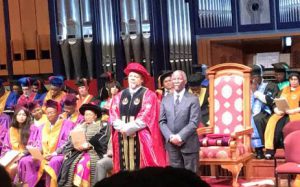
June 16, 1999: Thabo Mbeki inaugurated as Mandela’s successor as president of South Africa after another electoral victory for the A.N.C. After five years with Mr. Mandela at the helm, the country still faced serious problems of poverty and crime, but it had made the transition to democracy while maintaining widespread respect for the law and avoiding political revenge killings. [Mbeki Foundation profile] (see NM for expanded Mandela chronology; see June 1, 2004; SA/A, see January 30, 2015)
BLACK & SHOT/Philando Castile
June 16, 2017: a St Paul, Minnesota jury acquitted Jeronimo Yanez, a Minnesota police officer, of all charges in shooting, Philando Castile dead, Yanez, an officer for the suburb of St. Anthony, had been charged with second-degree manslaughter and endangering safety by discharging a firearm in the shooting. [NYT article] (B & S, see June 20; Castile, see June 26)
Philadelphia 15
June 16, 2023: just over a year before the attack on Pearl Harbor, 15 sailors assigned to the U.S.S. Philadelphia wrote a letter to a Black newspaper detailing the abuse and indignities they had faced on the warship solely because of the color of their skin.
When they enlisted, the Navy had promised training and assignments that would lead to advancement, but the Black sailors soon found that those opportunities did not exist for them. They were forced to be servants for the ship’s officers, “limited to waiting on tables and making beds” as so-called mess attendants, they wrote.
For daring to speak out, a few of the men were jailed and all of them were kicked out of the Navy with discharges that forever labeled them as unfit to serve.
The plight of the group, which became known as “the Philadelphia 15,” faded from public attention as World War II erupted. But the injustice they faced, and the stigma their discharge papers carried, lived on for more than 80 years.
On this date in a ceremony at the Pentagon’s Hall of Heroes, four surviving family members of two of those men, brothers John and James Ponder, accepted a formal apology from the Navy for the racist treatment their loved ones had endured as sailors aboard their ship.
The service also presented the family with newly issued honorable discharges for the Ponder brothers and announced that the discharges for the rest of the Philadelphia 15 had been upgraded as well.
“This is something — a wrong that shouldn’t have happened,” Larry Ponder, 72, son of John Ponder, said in an interview. “My dad and the Philadelphia 15, they were just whistle-blowers. All they did was inform the general public about them being mistreated.”
“They tried to do what was right through the chain of command but it didn’t go anywhere — so they wrote that letter.” [NYT article] (next BH, see June 29)
June 16 Peace Love Art Activism
Anarchism in the US
Emma Goldman
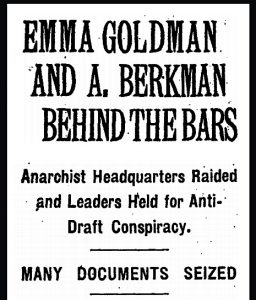
June 16, 1917: Goldman and Alexander Berkman were indicted on the charge of obstructing the Draft Act (Selective Service Act) in NYC. They pled not guilty. Bail set at $25,000 each. (see Goldman for expanded story)
Eugene V. Debs
June 16, 1918: Socialist Party leader Eugene V. Debs delivered an anti-war speech in Canton, Ohio, at a meeting of the local Socialist Party. Aware of the danger of federal prosecution (U.S. agents were in the audience), he carefully did not mention World War I or criticize President Woodrow Wilson. The speech was a generic Socialist criticism of war. (Anarchism, see Aug 30; Debs, see Sept 14)
June 16 Peace Love Art Activism
Fair Housing
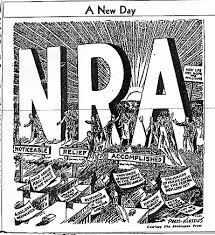
June 16, 1933: the National Industrial Recovery Act passed. Title II, Section 202 of the Act provided for permanent, federally funded housing. It directed the Public Works Administration (PWA) to develop a program for the “construction, reconstruction, alteration, or repair under public regulation or control of low-cost housing and slum-clearance projects...”. Led by the Housing Division of the PWA and headed by architect Robert Kohn, the initial, Limited-Dividend Program aimed to provide low-interest loans to public or private groups to fund the construction of low-income housing. [Our Documents] (see June 27, 1934)
June 16 Peace Love Art Activism
Judicial Milestone
June 16, 1958: in the case of Kent v. Dulles, the Supreme Court held that the right to travel overseas was a “liberty” enjoyed by citizens, which could not be denied without due process of law. Rockwell Kent was a noted artist, with left-wing views, who had been denied a passport on August 7, 1950, blocking his plan to attend the World Council of Peace in Helsinki, Finland. [Justia article] (see March 18, 1963)
June 16 Peace Love Art Activism
Vietnam
JFK and Nguyen Dinh Thuan
June 16, 1961: following a meeting between President John F. Kennedy and South Vietnam envoy Nguyen Dinh Thuan, an agreement is reached for direct training and combat supervision of Vietnamese troops by U.S. instructors. South Vietnamese President Ngo Dinh Diem had earlier asked Kennedy to send additional U.S. troops to train the South Vietnamese Army. U.S. advisers had been serving in Vietnam since 1955 as part of the U.S. Military Assistance Advisory Group. There would be only 900 U.S. military personnel in South Vietnam at the end of 1961, but in accordance with President Kennedy’s pledge to provide American military assistance to South Vietnam, the number of U.S. personnel rose to 3,200 by the end of 1962. The number would climb until it reached 16,000 by the time of President Kennedy’s assassination in November 1963. (see November 16, 1961)
South Vietnam Leadership
June 16, 1963: President Diem and Buddhist negotiations issued a joint communique meant to defuse the religious conflict: the ban on religious flags would be eased and the Hue incident of May 8 would be fully investigated.(V & SVL, see Aug 21)
21,000 more U.S. troops
June 16, 1965: Secretary of Defense Robert McNamara announced that the US would send 21,000 more U.S. troops to Vietnam. He also claimed that it was now known that North Vietnamese regular troops had begun to infiltrate South Vietnam. The new U.S. troops were to join the U.S. Marines and paratroopers from the 173rd Airborne Brigade that had arrived earlier to secure U.S. airbases and facilities. These forces would soon transition from defensive missions to direct combat operations. As the war escalated, more and more U.S. combat troops were sent to South Vietnam. By 1969, there were over 540,000 American troops in Vietnam. (see June 26)
June 16 Peace Love Art Activism
Space Race
June 16, 1963: the Soviet Union launched the first female space traveler, Valentina Tereshkova, into orbit aboard Vostok 6. During her three-day mission, she performed various tests on herself to collect data on the female body’s reaction to spaceflight. Before being recruited as a cosmonaut, Tereshkova was a textile factory assembly worker and an amateur parachutist. The American program, which had drawn astronauts from active duty military pilots, employed no female astronauts. [NASA article] (see Nov 22)
June 16 Peace Love Art Activism
June 16 Music et al
see WOR-FM for more
June 16, 1966: announcement that NY radio station WOR-FM would be first NYC FM station to play rock and roll music on a “regular basis.” (next Roots, see July 31)
Monterey International Pop Music Festival

June 16 – 18, 1967: a three-day concert event held at the Monterey County Fairgrounds in Monterey, California. Monterey was the first widely promoted and heavily attended rock festival, with up to 90,000 people present at the event’s peak at midnight on Sunday.
The festival is remembered for the first major American appearances by Jimi Hendrix, The Who and Ravi Shankar, the first large-scale public performance of Janis Joplin, and the introduction of Otis Redding to a large, predominantly white audience.
The Monterey Pop Festival embodied the themes of California as a focal point for the counterculture and is generally regarded as one of the beginnings of the “Summer of Love” in 1967, along with the Fantasy Fair and Magic Mountain Music Festival held at Mount Tamalpais in Marin County a week earlier. Monterey became the template for future music festivals, notably the Woodstock Festival two years later. (see June 28 – 29, 1967)
June 16, 1969 and the [bumpy] Road to Bethel
- Just after midnight a meeting was held about festival security. Wes Pomeroy insisted on a “soft” approach. The Peace Service Corps.
- Woodstock Ventures issued a statement to the press defending its position in the town of Wallkill. (see Chronology for expanded story)
June 16 Peace Love Art Activism
Sirhan Sirhan
June 16, 1972, Sirhan Sirhan sentence commuted to life in prison, owing to the California Supreme Court’s decision in People v. Anderson, (The People of the State of California v. Robert Page Anderson, 493 P.2d 880, 6 Cal. 3d 628 (Cal. 1972)), which ruled capital punishment a violation of the California Constitution’s prohibition of cruel or unusual punishment. The California Supreme Court declared in the Anderson case that its decision was retroactive, thereby invalidating all prior death sentences imposed in California.
June 16 Peace Love Art Activism
CLINTON IMPEACHMENT
June 16, 1998: Ken Starr released a 19-page attack on Brill’s article, calling the editor “reckless” and “irresponsible” for printing what he called a misinterpretation of their interview. (see Clinton for expanded story)
June 16 Peace Love Art Activism
Symbionese Liberation Army
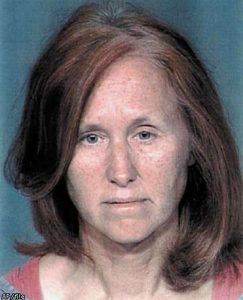 June 16, 1999: Kathleen Ann Soliah, a former member of the Symbionese Liberation Army (SLA), was arrested near her home in St. Paul, Minnesota. Soliah, who now calls herself Sara Jane Olsen, had been evading authorities for more than 20 years.
June 16, 1999: Kathleen Ann Soliah, a former member of the Symbionese Liberation Army (SLA), was arrested near her home in St. Paul, Minnesota. Soliah, who now calls herself Sara Jane Olsen, had been evading authorities for more than 20 years.
On April 21, 1975, members of the SLA robbed a bank in Carmichael, California, and, in the process, killed one of the bank’s customers, Myrna Opsahl. According to Patty Hearst, who served as the group’s getaway driver that day, Soliah took part in the robbery.
Four months later, in August 1975, Lost Angeles policemen discovered a bomb where one of their patrol cars had earlier been parked. Though police believe it had been designed to explode when the car moved, it had failed to detonate. Soliah was indicted for the crime in 1976 but by then she had already left town, and did not return, becoming a fugitive for nearly 23 years. Soliah eventually settled with her husband, a doctor, and three children in St. Paul, Minnesota, where she continued to advocate for various causes under the assumed name Sara Jane Olsen.
In the spring of 1999, however, Soliah’s case was featured on an episode of television’s America’s Most Wanted; she was arrested several weeks later. In 2002, as part of a plea bargain, she pled guilty to two counts of planting bombs and was sentenced to five years and four months in jail. The Board of Prison Terms then changed her sentence to 14 years. After pleading guilty to the attempted bombings, she was arraigned for the Opsahl killing and was later convicted and sentenced to another six years.
In 2004, a judge threw out the adjusted 14-year term, saying the board “abused its discretion” in changing the sentence. She was released from a California prison in March 2009. (see January 20, 2001)
June 16 Peace Love Art Activism
SEPARATION OF CHURCH AND STATE
June 16, 2014: the US Supreme Court left intact a lower-court decision that barred a public school district in Wisconsin from holding its graduation ceremonies in an evangelical Christian church.
Unlike in the Town of Greece v. Galloway [Oyez article], Justine Anthony Kennedy noted that students were a captive audience and not free to leave. Because the school gym was hot, cramped and stuffy, the school district decided in the year 2000 to move its graduation ceremonies to the modern, spacious and air-conditioned Elmbrook Church. There, “towering over the graduation proceedings … was a 15- to 20-foot-tall Latin cross, the preeminent symbol of Christianity,” the U.S. 7th Circuit Court of Appeals in Chicago noted when it considered the case.
Nine students and their parents had joined a 1st Amendment lawsuit objecting to holding graduation in the church. The 7th Circuit ruled, by a 7-3 vote, that this religious setting violated the Constitution.
The school district appealed. For more than a year, the Supreme Court’s justices weighed whether to hear the case.
The Court issued a one-line order denying the appeal in Elmbrook School District vs. Doe, despite dissents by Justices Antonin Scalia and Clarence Thomas. The dissenters said the 7th Circuit’s ruling was “fundamentally inconsistent” with the recent decision allowing prayer in town council meetings and should be overturned. (see Aug 5)
June 16 Peace Love Art Activism
Consumer Protection
June 16, 2015: the Food and Drug Administration gave the food industry three years to eliminate artery-clogging, artificial trans fats from the food supply, a long-awaited step that capped years of effort by consumer advocates and is expected to save thousands of lives a year.
Trans fats — a major contributor to heart disease in the United States — have already been substantially reduced in foods, but they still lurk in many popular products, including frostings, microwave popcorn, packaged pies, frozen pizzas, margarines, coffee creamers, graham crackers, and granola bars. [NYT article] (see Nov 12)
June 16 Peace Love Art Activism
Immigration History & Trump’s Wall
June 16, 2015: Donald Trump announced his campaign for the presidency and first mentioned his idea to build a southern border wall.
“I will build a great wall ― and nobody builds walls better than me, believe me ―and I’ll build them very inexpensively. I will build a great, great wall on our southern border, and I will make Mexico pay for that wall. Mark my words.”
Throughout his successful campaign, Trump regularly used a call and response with his crowds to reinforce his promise to build a wall and vilified immigrants from Mexico and Central and South America. (IH, see July 24; TW, see November 13, 2016)
June 16 Peace Love Art Activism
LGBTQ
June 16, 2018: in unscripted remarks to the Forum delle Famiglie, an Italian lay movement representing Catholic families, the pope discredited the love that gay parents provide their children.
“It is painful to say this today — people speak of varied families, of various kinds of family,” Francis said, but “the family (as) man and woman in the image of God is the only one.” (see June 25)
Transgender Students Protected
June 16, 2021: the Education Department said that transgender students were protected under Title IX, a law that prohibits sex-based discrimination in federally funded schools, reversing a Trump-era policy that effectively had said the opposite.
“We just want to double down on our expectations,” Miguel A. Cardona, the education secretary, said in an interview. “Students cannot be discriminated against because of their sexual orientation or their gender identity.”
The decision was rooted in a Supreme Court ruling last year that determined that protections in the Civil Rights Act against discrimination in the workplace extended to gay and transgender people, and similar interpretations of the ruling have appeared in agencies throughout President Biden’s government. His administration had conducted a sweeping effort to rescind, revise or revoke a number of Trump-era policies that rolled back transgender rights. [NYT article] (next LGBTQ, see June 21)
June 16 Peace Love Art Activism
Crime and Punishment
June 16: NPR reported that President Trump signed an executive order on policing. The order focused on three areas: credentialing and certifying police officers, creating a database to track officers who have been accused of misconduct and allowing social workers to go with police on some calls.
The order came as the president faced tremendous pressure to take action following the killing of George Floyd at the hands of police last month. (next C & P, see July 16)
DEATH PENALTY
June 16, 2021: the South Carolina Supreme Court blocked the executions of inmates Brad Sigmon and Freddie Owens that had been set for this month under the state’s recently revised capital punishment law.
The executions had been scheduled less than a month after the passage of a new law compelling the condemned to choose between electrocution or a firing squad if lethal injection drugs weren’t available. The statute was aimed at restarting executions after an involuntary 10-year pause that the state attributes to an inability to procure the drugs.
Prisons officials said they still could not get hold of lethal injection drugs and had yet to put together a firing squad, leaving the state’s 109-year-old electric chair as the only method of execution. [KXAN article] (next DP, see July 1)
June 16 Peace Love Art Activism
Women’s Health
June 16, 2021: rejecting arguments that the law should be left intact because prosecutors weren’t going after doctors who violate it, a three-judge panel of the 4th U.S. Circuit Court of Appeals in Richmond, Virginia ruled that North Carolina’s ban on most abortions after the 20th week of pregnancy must remain unenforceable, on Wednesday,.
The court upheld a 2019 lower-court decision striking down the prohibition, which haD been on the books since 1973.
The Republican-dominated legislature in 2015 narrowed the scope of medical emergencies under which a woman would be exempt from the 20-week limit. [Blue Ridge Public Radio article] (next WH, see June 18)
June 16 Peace Love Art Activism
Daniel Ellsberg/Pentagon Papers
June 16, 2023: Daniel Ellsberg, the history-making whistleblower who by leaking the Pentagon Papers revealed longtime government doubts and deceit about the Vietnam War and inspired acts of retaliation by President Richard Nixon that helped lead to his resignation, died. He was 92.
Ellsberg, whose actions led to a landmark First Amendment ruling by the Supreme Court, had disclosed in February that he was terminally ill with pancreatic cancer. His family announced his death Friday morning in a letter released by a spokeswoman, Julia Pacetti. [AP article] (see DE/PP for full chronology)
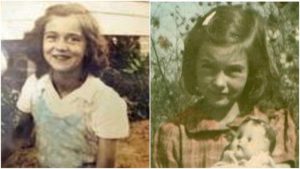 On the afternoon of March 23, 1944, Betty June Binnicker, 11, and Mary Emma Thames, 7, failed to return home. The next morning searchers, George Stinney, Sr among them, discovered the girls’ bodies lying in a water-filled ditch. Both girls’ skulls were crushed and one of the girl’s bicycles lay on top of their bodies.
On the afternoon of March 23, 1944, Betty June Binnicker, 11, and Mary Emma Thames, 7, failed to return home. The next morning searchers, George Stinney, Sr among them, discovered the girls’ bodies lying in a water-filled ditch. Both girls’ skulls were crushed and one of the girl’s bicycles lay on top of their bodies.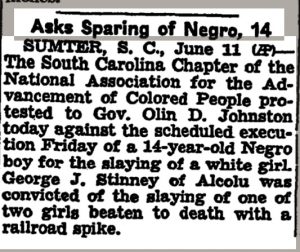 The day before the scheduled execution, the NAACP protested to Governor Olin D Johnston. The execution proceeded.
The day before the scheduled execution, the NAACP protested to Governor Olin D Johnston. The execution proceeded.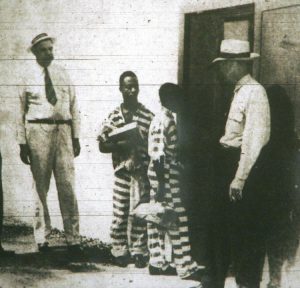 On June 16, 1944, Stinney became the youngest person to die in the electric chair and the youngest person executed in the United States in the 20th century. At 95 pounds, the straps don’t fit and an electrode was too big for his leg. His feet could not touch the floor.
On June 16, 1944, Stinney became the youngest person to die in the electric chair and the youngest person executed in the United States in the 20th century. At 95 pounds, the straps don’t fit and an electrode was too big for his leg. His feet could not touch the floor.